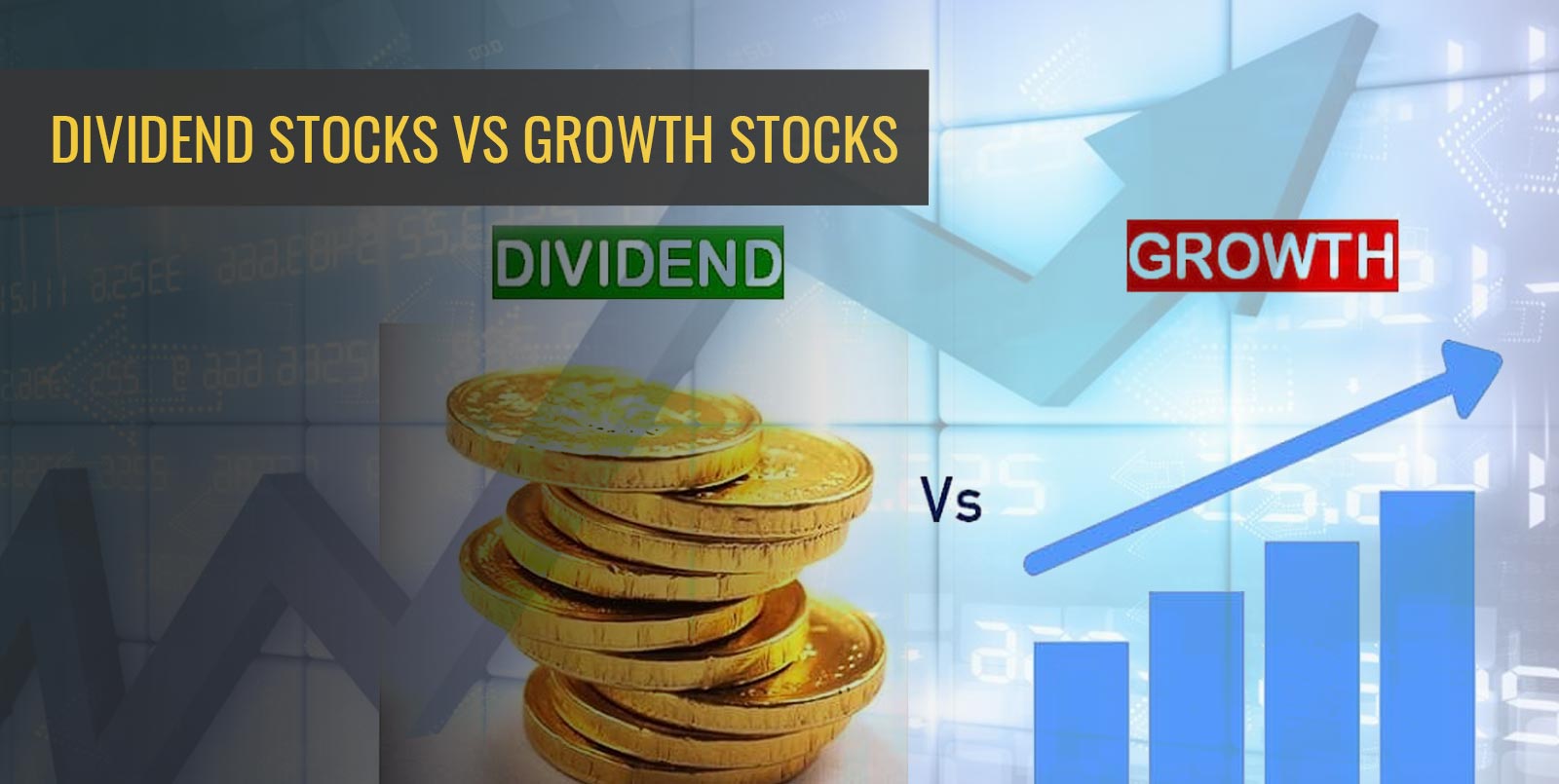

When it comes to stock investment, there are usually dividend and growth stocks. They suit different investor types. Investing in dividend vs growth stocks depends on the investment horizon, circumstances, and objective of investment.
In the case of dividend stocks, the returns earned on the shares are declared and shared with investors. The excess profit is withdrawn in the form of dividends. However, in growth stocks, the excess returns are reinvested. The yield materialises when the same is redeemed or sold.
Dividend stocks are usually stocks from companies earning profit. These companies are already established and generating profits. A dividend is a part of a company’s earnings distributed among its shareholders, and the company’s board of directors decides the amount.
Dividend stocks generate consistent cash flow – are potentially less risky because the investor receives money at regular intervals.
The advantages of dividend stocks are that they usually outperform growth stocks and generate consistent cash flow. Since the companies are paying dividends, it is an indication that they are financially stable. Dividend growth depends on a company’s ability to generate continuous revenue.
In financial terms, growth stocks are stocks from companies generating substantial and sustainable positive cash flow, with revenues and earnings growing more rapidly than the industry average.
The growth investment model focuses on generating higher returns over a long period. So, it is generally recommended for investors with a higher risk appetite and longer investment horizons who don’t require much liquidity.
| Parameters | Dividend stocks | Growth stocks |
|---|---|---|
| Investment horizon | Suitable for a shorter time horizon. | Appropriate for the long-term investment horizon. The profit is realised at the end of the holding period. |
| Returns | Cash inflow from the stocks at periodic intervals. | Cash inflow when redeemed or sold |
| Excess returns | Excess return is declared and distributed among investors | Returns are reinvested. |
| Tax | The company deducts 10% TDS at the source. | Capital gain tax is calculated depending on short-term or long-term investment. |
| Performance | Dividend stocks usually outperform growth stocks. | They would generally underperform. |
Whether to opt for dividends or growth shares depends on the investment horizon, investment objective, risk preferences, and the kind of return he is looking for by the investor. If you want to create wealth in the long term, you should invest in growth stocks and enjoy extended returns. You will not receive any immediate returns, but your investment will multiply over the years. On the other hand, dividend stocks are for investors with a short-term investment horizon and low-risk appetite. They would prefer a steady cash flow over the years.
Conclusion
In reality, no investment is always perfect and rewarding. Returns from investments depend on several internal and external factors. In a broader market, dividend stocks outperform growth equities and generate higher returns. If investors are looking for higher returns in the short term, they should invest in dividend shares.
Investors should consider investing in a balanced portfolio with dispersed risk and optimised risk-adjusted returns. It is best to evaluate each investor’s attributes and avoid those that don’t suit the requirements.
Disclaimer: “This blog is exclusively for educational purposes and does not provide any advice/tips on Investment or recommend buying and selling any stock”
Published on: Jul 18, 2022, 5:14 PM IST
We're Live on WhatsApp! Join our channel for market insights & updates
